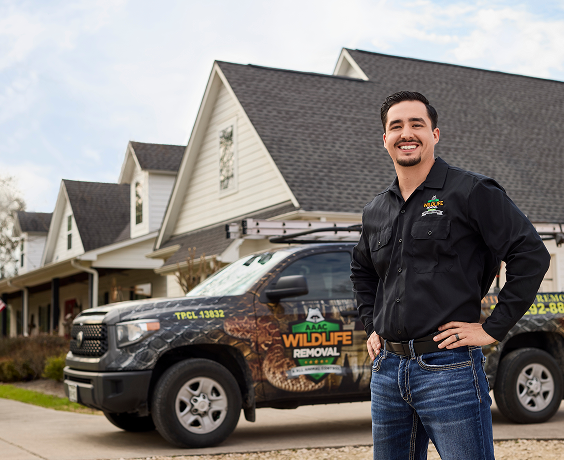What Degree Do You Need for Wildlife Management?
A bachelor’s degree in Wildlife Biology, Environmental Science, Zoology, or a related field is typically required for most wildlife management careers. Some roles may start with an associate degree, but advanced positions often call for graduate education and field-specific certifications.
Working with wildlife might sound like a dream job—and for many, it is. But behind every successful wildlife specialist is a solid educational foundation that prepares them to handle complex environments, protect species, and solve real-world ecological problems. Whether you’re aiming to become a conservation officer, wildlife biologist, or even a licensed wildlife removal professional, the right degree can open the door to a wide range of career paths in wildlife management.
This guide breaks down the most relevant degrees, skills, and certifications that can set you up for success in this field. From biology to environmental science, we’ll walk you through the options and explain how each connects to different roles—both in the field and behind the scenes. If you’re curious about how professionals like those at AAAC Wildlife Removal apply their training to manage wild animal populations safely and responsibly, you’re in the right place.
Common Degrees for Wildlife Management Careers
Wildlife Biology

Wildlife Biology is one of the most targeted degrees for those entering the wildlife field. It covers species management, animal physiology, habitat ecology, population dynamics, and even niche subjects like zoo operations or aquarium animal behavior.
Many programs also include hands-on lab work and field internships to prepare students for real-world conservation and research roles, often aligned with a solid curriculum that emphasizes species interaction and ethical wildlife handling.
This degree provides a broader look at the natural world and how human activity affects ecosystems. Students dive into sustainability, soil and water systems, environmental policy, and resource management—making this a great fit for careers that require a systems-thinking approach to wildlife and habitat preservation. Graduates often contribute to wildlife conservation efforts, pollution mitigation, or habitat restoration programs.
Zoology
A Zoology degree takes a deep dive into animal biology, behavior, and classification. It’s ideal for those looking to focus on specific animal groups or move into academic and research roles. Some programs offer coursework related to aquarium science, fishery management, and exotic species, helping students prepare for roles in animal rehabilitation centers, zoo management, or research facilities.
Forestry or Natural Resources
If you’re interested in managing public lands, parks, or natural reserves, a degree in Forestry or Natural Resources is worth considering. These programs explore land-use planning, forest ecology, soil conservation, and fire management while preparing graduates for careers in government and conservation agencies. Many also emphasize skills tied to forest health monitoring and long-term wildlife sustainability.
Ecology
Ecology majors study the relationships between organisms and their environments, often combining field research with statistical analysis. This is a great choice for those drawn to research, data collection, and strategic conservation efforts that guide wildlife policies and land use decisions. Students often engage in undergraduate research focused on topics like species diversity, ecological modeling, and environmental stressors impacting local ecosystems.
Education Levels and Career Paths
Associate Degree
An associate degree in wildlife management, environmental science, or a related field can open doors to entry-level roles like wildlife technician, field assistant, or animal care aide. These programs usually take two years and provide a basic understanding of wildlife handling, data collection, and habitat monitoring. While limited in advancement opportunities, they offer a fast track into the field with hands-on work experience.
Bachelor’s Degree

Most wildlife management careers require at least a bachelor’s degree. This is the standard for positions like wildlife biologist, conservation officer, park ranger, or environmental consultant. Bachelor’s programs typically include coursework in animal science, environmental policy, statistics, and geographic information systems (GIS), along with field research opportunities. Employers in both the public and private sectors often list a bachelor’s as the minimum qualification for full-time roles.
Master’s or Doctorate Degree
For those aiming to lead research projects, influence wildlife policy, or teach at the university level, a graduate degree is essential. A master’s or PhD allows professionals to specialize in areas like endangered species recovery, wildlife genetics, or ecological modeling. These advanced degrees are often required for federal agencies, research institutions, and high-level conservation roles.
Licenses, Certifications, and Field Training
Why Field Experience Matters
Classroom knowledge is essential, but real-world experience is what separates a textbook learner from a capable wildlife professional. Many roles require direct interaction with wild animals, from setting traps to performing habitat assessments. Field training helps build confidence, improves safety awareness, and ensures you’re prepared to handle unpredictable situations. Employers often favor candidates who’ve spent time in the field—even if it was through internships, volunteer work, or seasonal jobs.
Popular Certifications in Wildlife Management
Depending on your role and state, certain certifications may be required or highly recommended. The Certified Wildlife Biologist credential from The Wildlife Society is widely respected for biologists with at least a bachelor’s degree and relevant experience. Others may need chemical immobilization training, especially when working with large or dangerous animals. Wildlife control operators in many states must also pass exams and earn a license to legally trap and relocate animals.
State Licenses and Local Requirements
Each state has its own regulations for wildlife work, especially when it involves removal or control. In places like Texas or Florida, professionals need a license to handle nuisance wildlife legally. This may include training in humane trapping, disease prevention, and safety protocols. At AAAC Wildlife Removal, for example, technicians meet or exceed these requirements to ensure every job is done safely, ethically, and in compliance with local laws.
What Skills Should You Develop?
Field and Technical Skills
To thrive in wildlife management, you’ll need to be more than just passionate about animals—you’ll need technical know-how. Skills like tracking, GPS navigation, habitat surveying, and using field diagnostic tools are essential for day-to-day work. Whether you’re studying animal populations or setting up wildlife cameras, being comfortable outdoors and working with data is a must.
Communication and Documentation
Wildlife professionals often report findings, explain processes to property owners, or work with government agencies. That’s why strong communication and documentation skills are key. Whether you’re coordinating with teams or contributing to broader resource management plans, you’ll need to write clear field reports, log observation data accurately, and sometimes deliver presentations or speak with the public about wildlife behavior and safety.
Problem-Solving and Ethics
Wildlife management is full of unexpected challenges—animals don’t follow human rules. You might need to quickly devise a humane removal strategy or adapt to changes in an animal’s behavior. At the same time, it’s critical to operate ethically, ensuring the safety of both wildlife and people. This balance of critical thinking and responsibility is a core part of what makes a great wildlife professional.
How AAAC Wildlife Removal Applies Wildlife Knowledge
Science-Based Wildlife Management

At AAAC Wildlife Removal, our team doesn’t just guess—we use proven wildlife science to guide every decision. Our technicians are trained to assess habitats, identify species-specific behavior, and implement control strategies based on ecological principles.
This means using knowledge from biology, environmental science, and animal psychology to resolve wildlife conflicts effectively and humanely.
Real-World Scenarios, Applied Expertise
From raccoons tearing through attics to squirrels nesting in walls, every situation we handle requires practical application of what’s learned in the classroom. Our team uses safe trapping techniques, exclusion strategies, and habitat modifications that follow state regulations and ethical standards. Education gives us the tools, but experience allows us to adapt and act confidently in the field.
Ongoing Training and Compliance
We believe learning never stops. That’s why AAAC Wildlife Removal stays up to date on industry best practices, safety protocols, and state licensing requirements. Our technicians regularly participate in continuing education and field training programs. Whether it’s understanding local wildlife laws or adopting the latest humane removal technology, we’re always improving to better serve homeowners and protect local ecosystems.
Conclusion
Pursuing a career in wildlife management isn’t just about loving animals—it’s about committing to a path of education, training, and skill development that equips you to make a real impact. From associate degrees to advanced graduate programs, each step in your academic journey builds the knowledge base needed to responsibly manage wildlife and their habitats.
At AAAC Wildlife Removal, we bring that knowledge into the field every day. Whether it’s resolving human-wildlife conflicts, protecting homes, or supporting local ecosystems, our team combines science, ethics, and real-world experience to get the job done right. See how your qualifications might contribute to owning a pest control business and If you’re considering a career in wildlife—or simply want expert help managing the animals near your property—education matters, and so does who you trust.
